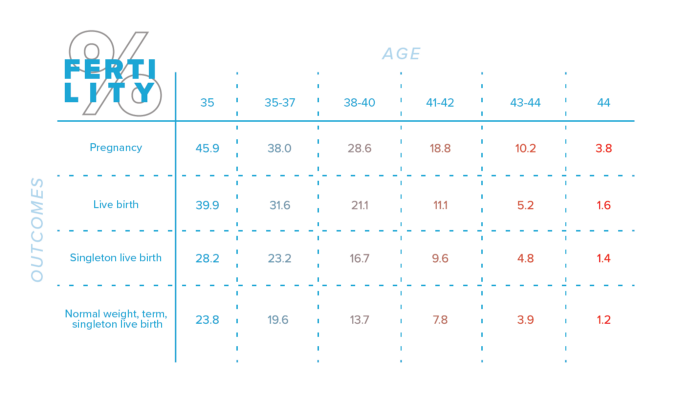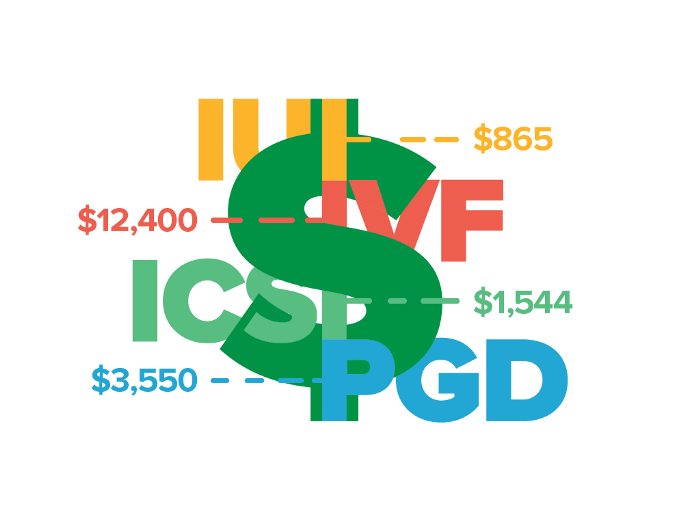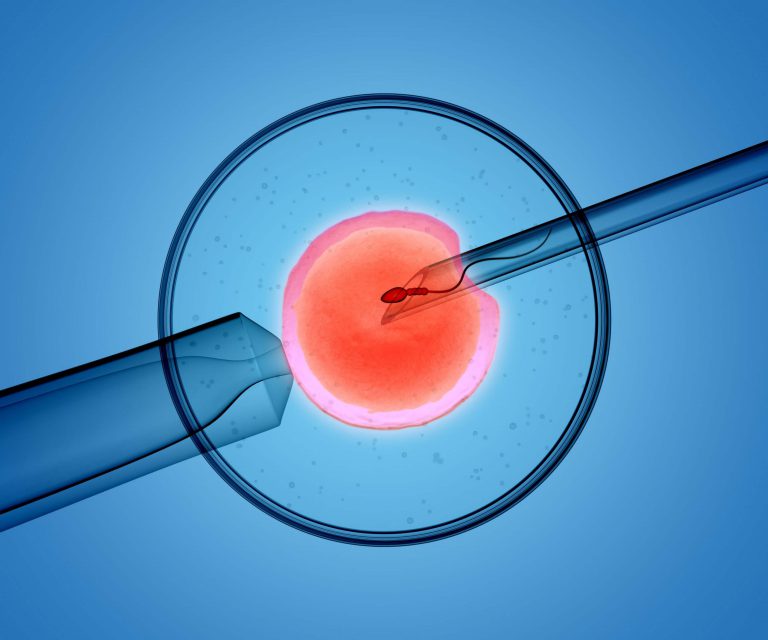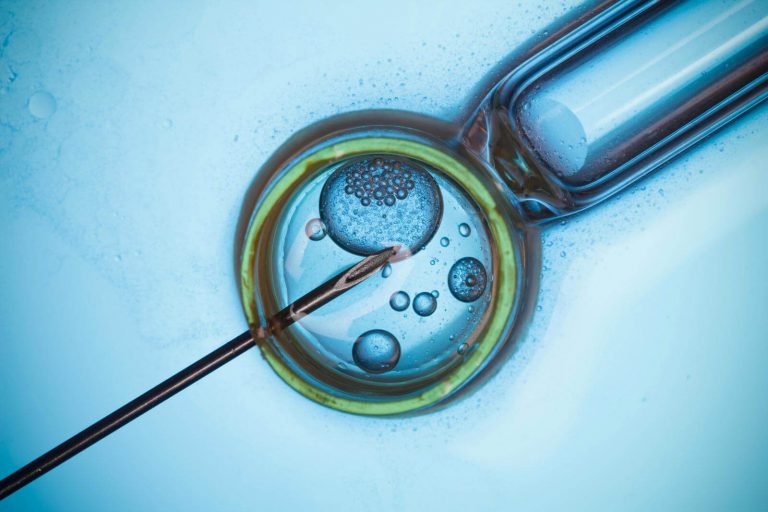Infertility Treatment and Success Rates

Medically Reviewed by Dr. Kevin J Campbell, MD, a fellow in Male Reproductive Medicine and Surgery at Bayor College of Medicine in Houston, TX, with Dr. Larry Lipshutlz.
This article will attempt to help you get a basic idea of how effective a particular treatment might be, and how expensive it might be (in the United States). For many reasons, including the ones listed above, it is only intended to be a rough guide. Always consult with your doctor or fertility specialist ahead of time to ask about their particular prices and success rates.
Infertility Treatment Success Rates
Infertility treatments can be costly and are not always guaranteed to work. Because there are several kinds of treatment options, and each option has a variable success rate that depends on factors like the patient’s age and health, finding information on how likely a procedure is to work for you can be difficult. Furthermore, because every treatment clinic has different prices, and insurance companies don’t always cover the cost of fertility treatments, the cost of any particular procedure can vary widely across a single city – let alone across the country.
Success rates of any fertility treatment are closely tied to the age and overall health of the patient. In general, the success rate of a treatment declines with the increasing age of a woman, particularly after the mid-30s. At least part of this risk is due to decreased ovarian reserve and also an increased risk of miscarriage as women age.
In general, the better the health of the patient, the more likely her fertility treatment is to work. Conditions like diabetes, heart disease, high blood pressure, and asthma need to be under control, and a woman who is overweight should consider a weight loss program, since obesity has been tied to infertility and miscarriage.
Below is a chart demonstrating the national average success rates for fertility treatments done in 2013 using non-donor eggs, broken down by age group. This data includes many kinds of fertility treatment, including egg stimulation, IVF, IVF with ICSI, gestational carriers, and PGD.

Average Cost of Infertility Treatment
It can be difficult to get a true estimate of the average costs of various fertility treatments, since costs vary widely from clinic to clinic, and depend on the treatment requested, the age of the patient, the location of the clinic, and other factors. Many clinics do not list their pricing online. To help determine the average costs of treatment, RESOLVE, a national infertility organization, called fertility clinics across the country and got information on the average price of several different kinds of treatments.

Intrauterine Insemination (IUI): $865
IUI is a common procedure for fertility treatment. It is one of the simplest and least expensive methods of treating infertility. However, the average success rates for IUI are lower than the success rates of IVF. Women under 35 years of age have a 10-20% chance of pregnancy. This decreases to 10% in women aged 35-40, and drops to 2-5% in women above age 40. Still, many clinics try IUI, often a few times before moving on to IVF. If IUI is unsuccessful the potential for saving could instead become an additional $2,500.
In Vitro Fertilization (IVF) Cycle: $12,400
IVF is a more complex, costly, and invasive procedure than IUI, but it has a much higher success rate and is more effective in treating severe forms of infertility. This involves retrieving eggs from the women and using sperm from an ejaculated sample or testicular tissue which is them allowed to fertilize prior to placement into the uterus. For young, healthy women, IVF success rates are roughly 40%. So, even in the best case scenarios, it can take 2-3 cycles to get pregnant.
Let’s break this total cost down further. An IVF cycle with fresh embryos costs on average $8,158 plus the cost of medications which can range from $3,000-$5,000. Additional costs for ICSI or preimplantation genetic diagnosis are discussed below.
IVF with ICSI: Additional $1,544
ICSI is the injection of a single, good-quality sperm into a mature egg, which is then placed into a woman’s uterus. It is an additional procedure done with IVF when fertilization is a concern, typically because of male factors.
Preimplantation Genetic Diagnosis (PGD): $3,550
In cases where one or both of the potential parents are known to be a carrier of a genetic disorder, PGD allows for the testing of the embryo for that disorder. While it is still not available from all clinics, the use of PGD is increasing. It is typically used for patients over 35, patients with a known genetic disorder, or patients who have already failed multiple fertility treatments.
Insurance Coverage for Fertility Treatment
A lot of fertility treatments must be paid for out of pocket, either because insurance will not cover them, or because the patient does not have insurance. A common situation is that insurance will pay for the cost of infertility testing, but will not cover any treatment to address infertility issues which are discovered through the testing. Not all treatment types are covered by all insurance companies. Often, there is a lifetime cap on how much the insurance will pay for infertility treatment – say, $10,000 to $25,000.
There are certain states that require insurance coverage for fertility treatments. Click here to find out more information about what your insurance company must cover.
Example Cost Case Studies
To show how the costs of infertility treatment can vary, below are some example scenarios with very different treatment costs.
1. A 36-year-old woman in Connecticut tries IUI 3 times, before giving up and moving on to IVF. She is one of the 38% in her age group who achieve pregnancy on the first cycle of IVF. Because Connecticut law requires that insurance cover up to 3 cycles of IUI and up to 2 cycles of IVF, she may not have to pay anything out of pocket at all, or perhaps only her regular office visit co-pays.
2. A 29-year-old woman in Iowa with a history of PCOS requires 6 IVF cycles before achieving pregnancy. Her insurance is not required to cover any infertility treatment, and they do not do so. She does not have to undergo fertility testing, since she has a previous diagnosis of PCOS and has reason to believe that is what is causing her infertility. However, each of her 6 IVF cycles, with medications, cost her $11,200 per cycle, for a total of $67,200. She also pays an additional $3,000 for PGD, because her partner is a known carrier for a genetic disorder. Her total cost is $70,200.
3. Finally, suppose a healthy 38-year-old woman in California has a spouse who is facing unexplained male infertility. The couple decides to try IUI. California has laws requiring insurance coverage of infertility treatments, other than IVF. The couple tries 2 rounds of IUI covered by insurance, and then decides to try IVF with ICSI. Insurance does not cover IVF and each cycle costs them $14,000. The couple tries three IVF cycles and none are successful. The couple decides to stop trying. Their total costs are $42,000.
Again, every couple’s situation is different. This information is not meant to discourage you, but to give you a realistic picture of what couples could face in various locations and at various ages. It’s always a good idea to talk to your doctor, your insurance company, and several local fertility clinics to figure out what your likelihood of success will be, and how much a particular treatment might cost.
Summarizing Infertility Treatment Costs
Again, every couple’s situation is different. This information is not meant to discourage you, but to give you a realistic picture of what couples could face in various locations and at various ages. It’s always a good idea to talk to your doctor, your insurance company, and several local fertility clinics to figure out what your likelihood of success will be, and how much a particular treatment might cost.
If you’re experienced infertility, consider ordering Path to check your sperm quality, sperm age, and more.







